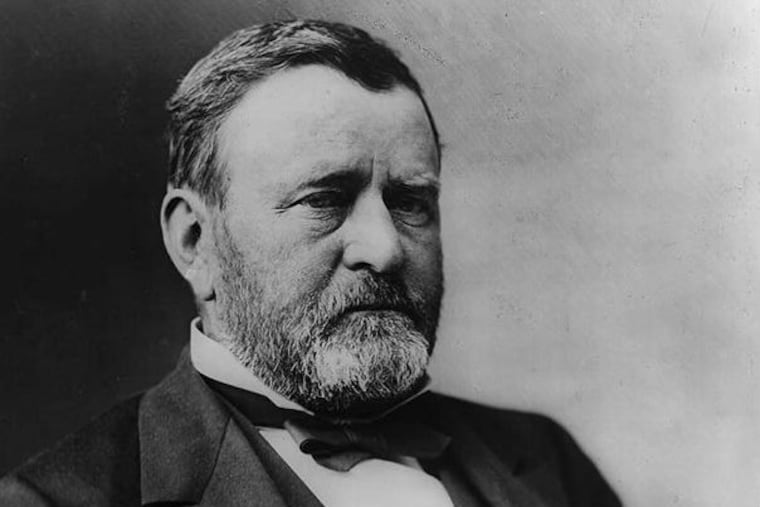Medical mystery: What nearly kept U.S. Grant from finishing his memoirs?

In 1884, nearly two decades after leading the Union Army to victory in the Civil War, and six years after completing two terms in the White House, Ulysses S. Grant was working on his wartime memoirs as he was stricken with severe throat pain and swallowing distress. The pain was so severe, he had to put down his favorite cigar.
Grant was known to smoke cigars in excess, progressing from a light smoker early in the Civil War to 20 cigars a day as fighting intensified. He often would chew an unlit cigar. Some say he chewed cigars for breakfast. Grant received so many boxes of cigars as gifts – 10,000 by one count -- he ended up with more than even he could possibly smoke.
Tobacco was not Grant's only vice. He started drinking heavily as a cadet at West Point, and became legendary for his binges. His boss, President Lincoln, did not think it hurt Grant's performance, once quipping, "I wish some of you would tell me the brand of whisky that Grant drinks. I would like to send a barrel of it to my other generals."
After leaving the White House in 1877, President and Mrs. Grant travelled the world. He enjoyed being received as the Civil War hero and savior of the Union. In 1880, Grant was urged by a Republican party faction, the Stalwarts, to run for a third term. But he was defeated at the convention, after 36 ballots, by James A. Garfield.
In 1881, Grant retired from politics, moved to a New York investment business and later began to write his memoirs, focusing on his military career. He wrote feverishly, often completing 25 to 50 pages a day, despite worsening throat pain and coughing. He grew progressively weaker and had trouble walking.
To escape the summer heat, the family moved upstate to a cottage in the Adirondacks, where they received family, friends, admirers and even former Confederate soldiers who wanted to honor Grant.
Soon, the president no longer could lie down without choking. Then he could not swallow food or even breathe without distress.
What was the affliction that felled Grant?
Solution
Grant's cigar habit led to throat cancer, diagnosed in June 1884 as carcinoma of the right tonsillar pillar, at the base of the tongue. The cancer was a squamous epithelioma, which invaded his throat, pharynx and epiglottis, eventually blocking his airway.
He suffered terribly, once writing, "I have such difficulty in speaking that I am no company."
He had to be propped up in a chair, supported by pillows, as he wrote the story of his life from his cottage porch. Grant also dictated to a scribe, but when speaking grew impossible, he scratched out his memorable words on a legal pad in pencil.
Grant's physician prescribed cocaine, as a throat spray, in a "French wine tonic" called Vin Mariani. The cocaine numbed the pain, allowing Grant to keep up his eight-hour writing days. When he wasn't writing, he was sleeping. Every day Grant went through multiple bottles of tonic, each containing 6 milligrams of cocaine, then a legal substance.
One day, his breathing grew so labored, Grant passed out. A minister performed last rites, but a doctor revived the former president. "It is Providence. It is Providence," the minister explained. The doctor responded, "No, it was the brandy".
Grant finished his manuscript on July 18, 1885, and died five days later, the only U.S. President to succumb to cancer.
The memoirs were published by Grant's friend, Mark Twain, and became an instant bestseller, hailed by the critics. And the proceeds saved his wife, Julia Grant, from an impoverished widowhood, since her husband had lost his money in a financial swindle.
Today, Grant's throat cancer could be treated with radiotherapy, and throat surgery including a tracheostomy (an airway opening to allow breathing) and an aspiration pump.
Allan B. Schwartz, M.D., is a professor of medicine in the Division of Nephrology & Hypertension at Drexel University College of Medicine.